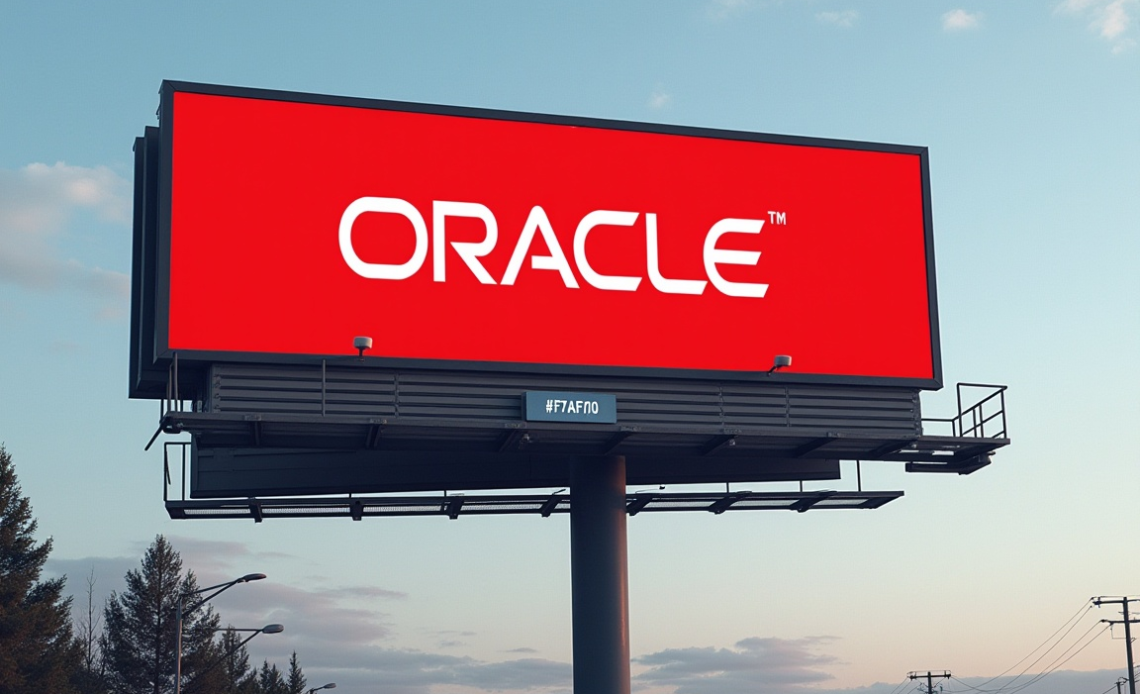
Oracle shares surged by more than 31% in premarket trading on Wednesday after the enterprise software company revealed its cloud backlog had ballooned to $455 billion, and forecast booked revenue from cloud business to exceed half a trillion dollars over the next few months.
The development overshadowed a mixed set of quarterly results and muted near-term guidance, shifting investor focus to the company’s long-term growth trajectory.
For the fiscal first quarter, Oracle reported adjusted earnings per share of $1.47, narrowly missing Wall Street’s consensus of $1.48 but rising from $1.39 a year earlier.
Revenue increased 12% year-on-year to $14.9 billion, slightly shy of analyst estimates.
Cloud services growth, a key metric, also fell short of expectations, while second-quarter guidance left investors underwhelmed.
The company’s stock nevertheless soared as attention turned to its backlog of contracted cloud work, known as remaining performance obligations (RPO).
Oracle said RPO jumped 359% from the prior quarter to $455 billion, boosted by four multi-billion-dollar contracts with three major customers.
Chief Executive Safra Catz said additional agreements are expected to push the backlog beyond half a trillion dollars in the coming months.
AI demand fuels cloud expansion
Oracle’s aggressive push into cloud computing has been driven by the artificial intelligence boom.
The company, long known for its database software, is now emerging as a major provider of AI cloud infrastructure, competing directly with Amazon Web Services and Microsoft Azure.
The company forecast Oracle Cloud Infrastructure (OCI) revenue growth of 77% this fiscal year to $18 billion and projected $144 billion over the next four years.
First-quarter revenue from its public cloud services rose 55% from a year earlier.
Oracle’s partnerships and hybrid strategy
Oracle has also struck landmark agreements with Amazon, Alphabet and Microsoft to run its OCI within their clouds.
Revenue from these clients surged 1,529% in the quarter, showing how the company’s hybrid strategy is paying off.
The surge in demand has forced Oracle to transform its business model.
Once known for its asset-light, software-licensing approach, the company is now committing billions to building data centres.
Capital expenditures are expected to reach $35 billion in fiscal 2026, up from just $1.6 billion in 2020.
Legacy slowdown and financial trade-offs
Oracle’s pivot to the cloud represents both opportunity and challenge.
Between 2012 and 2022, Oracle’s average sales growth was just 1.6%, but steady cash flows allowed consistent share buybacks, reducing the share count by 5.3% annually and boosting per-share metrics.
That dynamic is now shifting. With cloud investment ramping, buybacks have slowed, and free cash flow has turned negative for two consecutive quarters.
The company’s share count is rising again, reflecting the cost of financing its growth strategy.
Analysts weigh promising backlog, AI strides against valuation: should you buy ORCL?
Oracle now expects fiscal 2025 sales growth of 8–14%, down from a prior forecast of 16–24%, and operating profit growth of 10–16%.
Despite near-term margin pressures, analysts believe the record backlog signals a new growth era.
Morningstar analysts said that Oracle’s partnerships with leading AI firms, including OpenAI and Elon Musk’s xAI, place it in a central role in training and inference workloads.
“Unprecedented RPO growth acceleration highlights that we are still early in a multiyear AI investment cycle,” said William Blair analyst Sebastien Naji, who kept an Outperform rating.
“While shares are not inexpensive, the impressive RPO build points to a meaningful acceleration in Oracle’s revenue and earnings growth over the next several years,” Naji wrote.
The stock is trading at over 33.34 times its 12-month forward earnings estimates, compared with Amazon’s 32.34 and Microsoft’s 30.83.
Speaking to CNBC’s Fast Money after the earnings release, DA Davidson analyst Gil Luria described Oracle’s cloud revenue outlook as “absolutely staggering,” noting it implies a tenfold increase over the next five years.
Luria, however, struck a note of caution.
He pointed out that hyperscalers such as Microsoft and Google have increasingly been “offloading their capacity to other data centre providers,” which has channelled business toward Oracle.
“These are not organic customers for Oracle,” Luria said, maintaining a Hold rating on the stock.
“These are Microsoft, Google and Amazon’s clients making use of Oracle’s capacity.”
Jefferies raised PT on Oracle from $270 to $360, maintaining ‘buy’ on the stock.
The post Oracle stock jumps 31% on $455B cloud backlog; analysts cautiously bullish appeared first on Invezz






